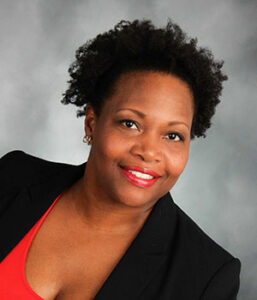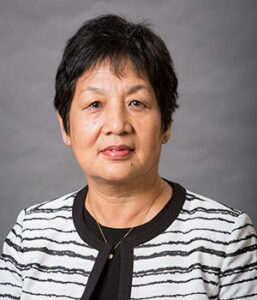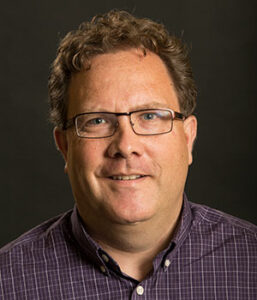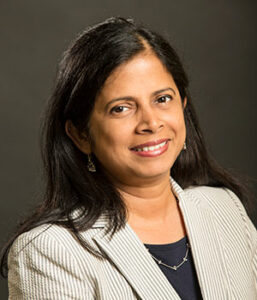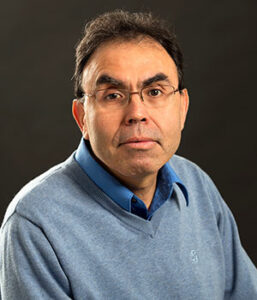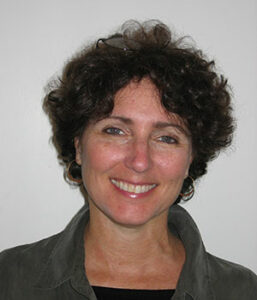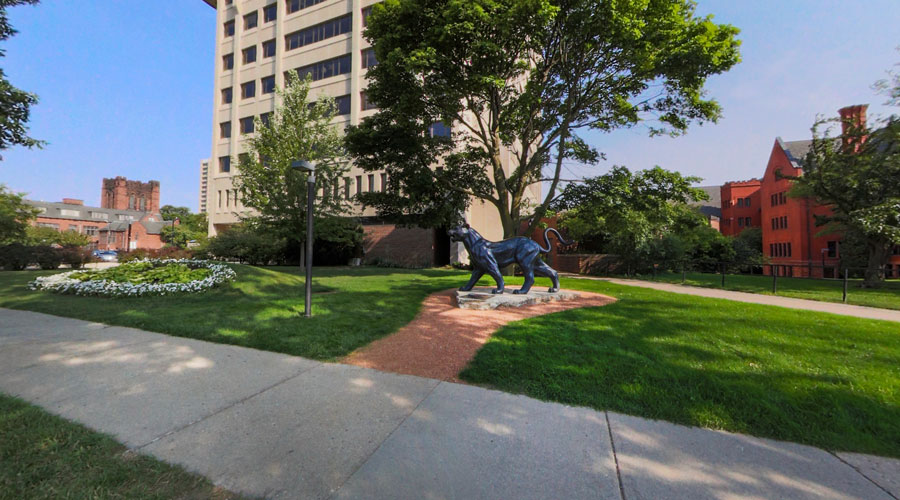Community Engagement and Education, BS / Cultural Foundations of Community Engagement and Education, MS BS, MS
Earn your BS in Community Engagement & Education (CEED), plus a master’s in Cultural Foundations of Community Engagement and Education (CFCEE) in as little as five years with the CEED/CFCEE accelerated graduate degree program!
Program Type
Accelerated Graduate
Program Format
On Campus
Why Choose the CEED/CFCEE Accelerated Graduate Program?
- Save Time: Total time to earn an undergraduate and graduate degree is five years, rather than six.
- Save Money: Pay undergraduate tuition instead of graduate tuition for the first six credits of the MS in CFCEE degree program, and take up to 21 fewer credits overall.
- More Support: Students admitted to the accelerated graduate degree program have undergrad and graduate faculty advisors to help them succeed.
- Expertise: Work closely with internationally known faculty who have a wide range of research interests.

Through the BS in Community Engagement & Education, you will prepare for a career in community-based organizations, foster care agencies, child care centers, schools and other community and educational institutions. The MS in Cultural Foundations of Community Engagement provides additional training to have an even greater impact in your work with youth and adults in these environments, teaching research skills and drawing from the fields of sociology, history, philosophy and more. The CEED/CFCEE accelerated graduate degree program will make you eligible for positions that require a relevant master’s degree.
In The CEED/CFCEE Accelerated Graduate Program, You Will:
- Explore the ways social forces affect urban schools and communities.
- Examine historical and philosophical foundations of community problems and leadership theory.
- Engage in policy analysis to develop creative solutions that promote social justice.
- Expand your skills for working in community-based organizations and schools.
- Gain preparation for entering a PhD program for those interested.
CEED/CFCEE Accelerated Graduate Careers
This list provides a sample of actual positions held by alumni of the master’s program in Cultural Foundations of Community Engagement and Education. It gives a sense of the broad diversity of jobs our graduates have found with the background provided by the degree.
Visit the program webpages to learn more about each program.
- Community Engagement and Education (CEED)
- Cultural Foundations of Community Engagement and Education (CFCEE)
How Does the CEED/CFCEE Accelerated Graduate Program Work?
The document below provides two examples of how the CEED/CFCEE accelerated graduate degree applies to students, depending on their degree progress in the Community Engagement and Education BS degree program.
Examples of Credit Benefit for Students in Different Credit Situations (PDF)
Program Requirements
CEED/CFCEE Accelerated Graduate Sample Plan
Admission Criteria
Continuing/Transfer Students
- Declared undergraduate major in Community Engagement and Education (CEED);
- 2.75 or higher cumulative GPA;
- Approximately 41 credits or more remaining for BS degree, including 15 remaining credits of non-Educational Policy and Community Studies electives (you must be admitted to the accelerated graduate degree program prior to taking courses that will count toward the master’s degree, between 54 and 90 credits or junior year). Students with more undergraduate credits may be approved, but will not be able to share as many credits. Credits from the MS program can count only for non-Educational Policy and Community Studies credits in Community Engagement and Education (CEED);
- Advisor approval from the Department of Educational Policy & Community Studies.
High School Graduates
- Minimum GPA of 3.00 for all high school work.
- Admitted in good standing to UWM.
Application Process
- Start by meeting with your undergraduate academic advisor to determine your eligibility. Ideally, you should meet with your advisor as early as possible to ensure you have room in your undergraduate program to begin taking courses toward the graduate degree after you have taken 36 undergraduate credits (third year student). If your advisor feels you can proceed with the application, they will submit a request to change/add a program, plan or subplan (depending on your major), which will be forwarded to the program coordinators.
- To apply to the CEED/CFCEE accelerated graduate degree program, submit an email to the program coordinators with these required materials:
- Transcript (unofficial OK); minimum undergraduate GPA of 2.75 (entering first year students high school students can submit high school transcripts).
- Personal statement (at least 500 words, no more than 2 pages, explaining your personal and professional interest in the particular field of study and reasons for pursuing an accelerated graduate degree).
- Two recommendations: Two individuals familiar with your academic work should complete the accelerated graduate degree program recommendation form. Any letters of recommendation are optional, but must be accompanied by the recommendation form. You may download a copy that can be completed or send this link to your references: CEED-CFCEE Undergraduate Recommendation Form (PDF).
- If your CEED/CFCEE accelerated graduate degree application is approved, you will be notified and the program/plan/subplan will be matriculated in PAWS. All students in this accelerated graduate degree program will be expected to attend an informational meeting with the full program at the start of every semester.
- Continue with your undergraduate coursework until it is time to register for two graduate-level courses (six credits) in your senior year. Up to 15 undergraduate, non-Educational Policy & Community Studies electives should be left untaken, so that the maximum number of credits from the MS program can be shared back into the BS degree. For courses with U/G status, for these six credits, you must follow the syllabus and grading scale designated for graduate students. NOTE: In order to earn graduate credit for these courses, you must receive a grade of “B” or better.
- Upon completion of the BS degree credit requirements, apply for BS degree completion to have your undergraduate degree conferred. This can happen once the credits that will shared back from the MS program have been completed. (The MS degree cannot be conferred if your BS has not already been conferred.)
- At the beginning of your last undergraduate semester, you need to formally apply to the Graduate School. Students already in the CEED/CFCEE accelerated graduate degree program will complete the application for the “accelerated graduate program” in Panthera. Admission to the accelerated graduate program does not guarantee admission to the MS program at that time, as you must meet the requirements for the MS program.
- Associate Professor, Educational Policy and Community Studies
- Program Director, Alternative Education
- rfarhin@uwm.edu
- Enderis Hall 523
- Associate Professor, Educational Policy and Community Studies
- kalyanir@uwm.edu
- 414-229-2587
- Enderis Hall 519
- Professor, Educational Policy and Community Studies
- Department Chair, Educational Policy and Community Studies
- Program Director, Community Engagement and Education
- Program Director, Cultural Foundations of Community Engagement and Education
- schutz@uwm.edu
- 414-229-4150
- Enderis Hall 553
- Professor, Educational Policy and Community Studies
- swaminar@uwm.edu
- Enderis Hall 557
- Associate Professor, Educational Policy and Community Studies
- jtapia@uwm.edu
- 414-229-5261
- Enderis Hall 563
- Teaching Faculty III, Educational Policy and Community Studies
- atroiano@uwm.edu
- 414-229-4724
- Enderis Hall 529
We invite you to explore these brief interviews with Cultural Foundations of Community Engagement and Education MS graduates. Learn how the degree supported their careers and about the jobs they are doing now.
Alberto Maldonado
- Graduation: 2010 Master’s Degree in Cultural Foundations of Community Engagement and Education
- Position: Director, Roberto Hernandez Center, UWM
- Alberto’s testimonial (YouTube)
Anna Gibson
- Graduation: 2019 Master’s Degree in Cultural Foundations of Community Engagement and Education
- Position: Social studies teacher, Whitefish Bay School District
- Anna’s testimonial (YouTube)
Millie Coby
- Graduation: 2006 Master’s Degree in Cultural Foundations of Community Engagement and Education
- Position: Community engagement and strategic initiatives manager, Employ Milwaukee
- Millie’s testimonial (YouTube)
Kevin Foley
- Graduation: 2014 Master’s Degree in Cultural Foundations and Community Engagement and Education
- Position: Administrative manager, Madison College
- Kevin’s testimonial (YouTube)
Angie Cervera
- Graduation: 2005 Master’s Degree in Cultural Foundations and Community Engagement and Education
- Position: English teacher, Racine Unified School District
- Angie’s Testimonial (YouTube)

